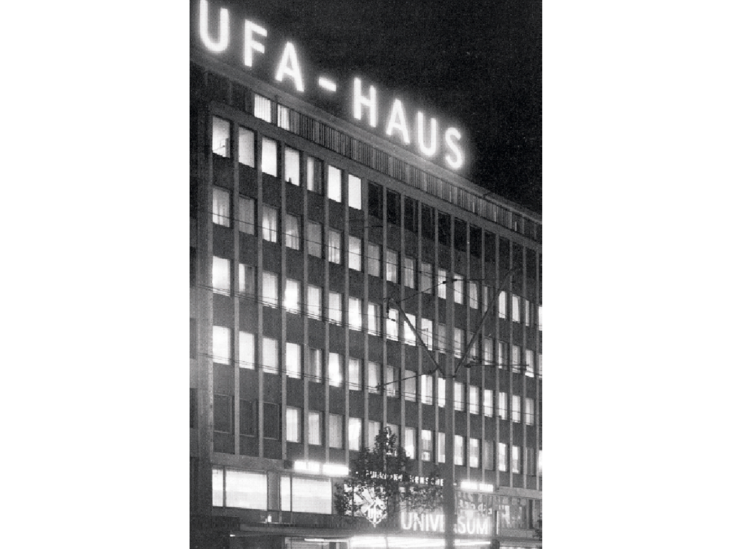Historical Paths
Ufa, Bertelsmann and the establishment of the Friedrich Wilhelm Murnau Foundation
It may surprise some cineastes to see an international company that is commercially successful with its media businesses in more than 50 countries, and a foundation under public law, which today manages most of Germany's film heritage, appear as partners in a project to preserve a significant silent film. For several years now, Bertelsmann has been working to preserve Germany's silent-film heritage, at various levels and in pan-European context: The UFA Film Nights, for example, a festival originally established in Berlin, went on to achieve great popularity in other European countries as well; and in 2014 Bertelsmann became the main sponsor of the digital restoration of the classic THE CABINET OF DR. CALIGARI. The world premiere of this version of the Expressionist masterpiece at the Berlinale 2014 became a major media event. Since then, Bertelsmann has organized further screenings in Berlin, Brussels, Madrid and New York.
In this connection, it also provided the financial support for the digital restoration of Fritz Lang's DESTINY (2016), Paul Czinner's THE FIDDLER OF FLORENCE (2018), and two of Ernst Lubitsch’s movies: CARMEN (2021) and KOHLHIESEL’S DAUGHTERS (2023). In 2025, THE CONVICT FROM ISTANBUL by Gustav Uciciky was digitally restored and will be presented at the UFA Film Nights. Ultimately, however, the efforts of Europe's largest media house tie in to a historical connection that began over 60 years ago.
Effective January 1, 1964, Bertelsmann acquired Universum-Film AG (Ufa), which had gone bankrupt after the reprivatization, and in so doing achieved its long-desired entry into the television production business. At that time, expansion was the order of the day in Gütersloh. Founded in 1835, the publishing house had taken its first step out of pure-play (printing and) publishing in 1950 with the establishment of the Bertelsmann Lesering, and had enjoyed rapid growth ever since. In the early 1960s, the first Lesering offshoots in other European countries were founded. Above and beyond this, Reinhard Mohn (1921-2009), the “post-war founder,” CEO and owner of Bertelsmann, was determined to expand into new lines of business, a process that had begun with the founding of the Ariola record label in 1958. And while the next step - the path to commercial television, which had moved within reach at the end of the 1950s (“Adenauer-Fernsehen”) - was still a long way off, content production for public-service TV appeared to be a worthwhile business for the future.

